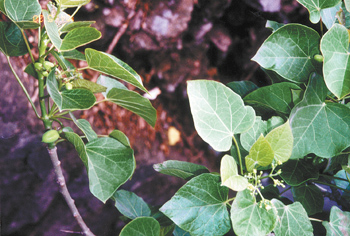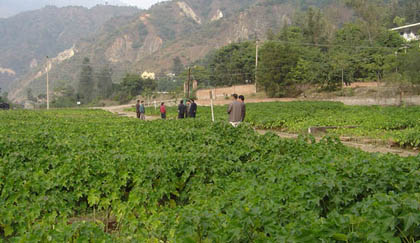“China, the world’s third-largest ethanol maker, will use 32.9 million acres (13.3 million hectares) of forestland, equivalent to the size of England, to grow trees that can be harvested to make bio-fuels. (via)”
It amazes me sometimes what China will do when China feels like doing something. They want a dam, they build the biggest one in the world, screw the consequences. They want wind turbines, by god they are going to build some F’ing turbines. Well it seems they want to make some Ethanol.
The world’s second-biggest energy user may spend 1.5 trillion yuan ($192 billion) in the next 15 years to increase the use of renewable resources to cut the nation’s reliance on oil.
…
The state forest agency signed an agreement with PetroChina Co to develop land to grow crops for bio-fuels in southwestern China’s Yunnan and Sichuan provinces, PetroChina said on January 11. Bio-fuels, which include bio-diesel and bio-ethanol, are made from vegetable oils or animal fats. They are blended with gasoline and diesel to reduce pollution from vehicle engines.(via)
I feel that China may be thrashing around like a hungry dragon at this point, scooping up any fuel source it can get its hands on. It is eating oil, coal, wind, solar, biofuel, hydro, and any other fuel source it can get its hands on at an impressive rate. I can’t say for sure if this is part of a long term sustainable energy plan, but when you have that many citizens that need energy, and an economy that is growing like a weed, its hard to put a lot of things into perspective.
With China set to become the greatest emitter of green house gasses lets hope that this biofuel program produces a significant reduction in C02 emissions. China plans on growing Jatropha to meet its biofuel needs.
Jatropha, also called physic nut, is currently grown on around 2 million hectares across the country and produces non-edible oil for making candles and soap.
Now, it will be the main ingredient in the production of biodiesel. The 13-million-hectare forest mostly spread over southern China is expected to produce nearly 6 million tons of biodiesel every year. Vehicles account for a third of all oil use in the country.
Biodiesel is a clean-burning diesel made from natural, renewable sources such as agricultural products like palm oil, soybeans and sugarcane with Brazil, in particular, being a global leader. The jatropha trees can also provide wood fuel for a power plant with an installed capacity of 12 million kilowatts about two-thirds the capacity of the Three Gorges Dam project, the world’s biggest. This amount of bio-energy will account for 30 percent of the country’s renewable energy by 2010, according to the SFA. (via)


Ah, the inscrutable Chinese. It has always been difficult to understand their intentions. I fell that is because they, at the governmental level, make decisions based on many, many factors.
In this case I don’t think the CO2 (aka global warming) factor plays a big part (as you say, they are much too energy hungry to afford that luxury) but it could be icing on the cake – it looks good to the rest of the world and it never hurts to have some political capital.
It could be that they have done the math and found this source of RE to be cost competative. However, it is very early in RE development and I don’t know that anyone cansay with any certainty what the ROI is – but they must have come up with some number. At a minimum it should help moderate oil prices.
Given the scale of the project it could be they see a place to put rural people to work. China needs more jobs and this is would be a very large operation (if it reaches maturity).
Or it could be a boondoggle. China is no more free from corruption than we are.
Of course it is likely a combination of all those and more I did not consider. A tidy package – just the way Chinese thinking likes it.